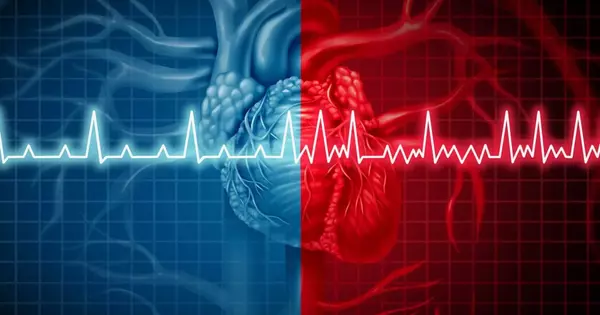Women are more likely than men to die from heart attacks. The reasons for this are differences in age and comorbidity burden, which make risk assessment difficult in women. Researchers have created a new artificial-intelligence-based risk score that improves personalized care for female heart attack patients.
Heart attacks are one of the leading causes of death worldwide, with women having a higher mortality rate than men. Cardiologists have been concerned about this for decades, and it has sparked debate in the medical community about the causes and effects of potential gaps in treatment.
The problem starts with the symptoms: unlike men, who usually experience chest pain with radiation to the left arm, a heart attack in women often manifests as abdominal pain radiating to the back or as nausea and vomiting. These symptoms are unfortunately often misinterpreted by the patients and healthcare personnel – with disastrous consequences.
We were able to develop a novel artificial-intelligence-based risk score that accounts for sex-related differences in the baseline risk profile and improves the prediction of mortality in both sexes using a machine learning algorithm and the largest datasets in Europe.
Florian A. Wenzl
Risk profile and clinical picture is different in women
An international research team led by Thomas F. Lüscher, professor at the University of Zurich’s Center for Molecular Cardiology (UZH), has now investigated the role of biological sex in heart attacks in greater depth. “There are significant differences in the disease phenotype observed in males and females. According to our findings, women and men have significantly different risk factor profiles at the time of hospitalization “Lüscher explains.
Female heart-attack patients have a higher mortality rate than male patients when age differences at admission and existing risk factors such as hypertension and diabetes are taken into account. “However, when these differences are statistically considered, women and men have comparable mortality,” the cardiologist adds.

Current risk models favor under-treatment of female patients
Researchers from Switzerland and the United Kingdom examined data from 420,781 patients in Europe who had suffered the most common type of heart attack in their study, which was published in the journal The Lancet. “The study demonstrates that established risk models that guide current patient management are less accurate in females and favor undertreatment of female patients,” says first author Florian A. Wenzl of the University of Zurich’s Center for Molecular Medicine.
“We were able to develop a novel artificial-intelligence-based risk score that accounts for sex-related differences in the baseline risk profile and improves the prediction of mortality in both sexes using a machine learning algorithm and the largest datasets in Europe,” Wenzl says.
AI-based risk profiling improves individualized care
Many researchers and biotech firms believe that artificial intelligence and Big Data analytics are the next step toward personalized patient care. “Our findings herald the dawn of the era of artificial intelligence in the treatment of heart attacks,” Wenzl says. Modern computer algorithms can learn from large data sets to make accurate predictions about individual patients’ prognoses, which is essential for individualized treatments.
Thomas F. Lüscher and his colleagues see enormous potential in using artificial intelligence to manage heart disease in both male and female patients. “I hope that incorporating this novel score into treatment algorithms will refine current treatment strategies, reduce gender disparities, and ultimately improve the survival of patients with heart attacks – both male and female,” says Lüscher.















